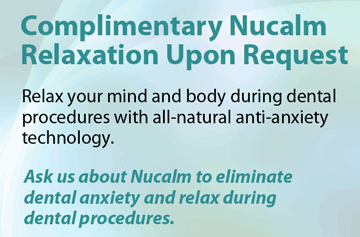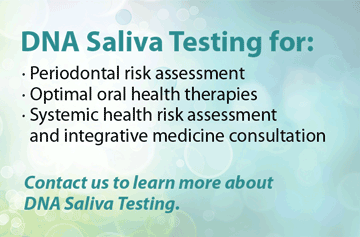By Isaac Comfortes, D.D.S.
Over 92 million American adults now live with some form of cardiovascular disease. According to the CDC (Centers for Disease Control and Prevention), it is estimated that one out of every three American adults has hypertension, about 75 million people. And, periodontal disease (gum disease) affects nearly 50 percent of the adult American population. When gum infection is chronic and left untreated, the increased inflammation can cause cardiovascular complications. This is due to the occurrence of high-risk pathogens (bacteria) in diseased mouths. A primary complication is atherosclerosis, i.e., the buildup of arterial plaque that can lead to cardiac arrests, strokes, and aneurysms.
Reputed medical researchers and authors, Bradley F. Bale, Amy L. Doneen, and David J. Vigerust, recently published a review of scientific studies regarding the contribution of high-risk periodontal pathogens to artherosclerosis. This article is online in the Postgraduate Medical Journal. The main messages of the article follow in italics, and I will attempt to simplify and explain what they mean.
- Periodontal disease (PD) due to high-risk pathogens can adversely influence the atherosclerosis pathogenesis triad (the buildup of arterial plaques made up of lipids, calcium and inflammatory cells).
- PD caused by high-risk pathogens may be considered a contributory cause of arterial disease.
- The dental community has a substantial opportunity to mitigate the number one cause of morbidity and mortality, namely cardiovascular disease, by elucidating feasible effective management of PD due to high-risk pathogens.
What is artherosclerosis?
Artherosclerosis is the formation of plaques (deposits of cholesterol and other lipids, calcium, and large inflammatory cells called macrophages) on the walls of arteries. Once plaque is present, it can partially or completely obstruct blood flow, it can cause an artery to rupture and cause a blood clot (arterial thrombosis), and it can weaken the wall of an artery causing it to balloon out to form what is called an aneurysm.
What is periodontal disease?
Periodontal disease is commonly referred to as gum disease. It is a bacterial infection that attacks the soft and hard tissues of your mouth. If caught in its earliest stages, the side effects are more easily treated. Without treatment, gum disease will advance, and when severe, can result in teeth becoming loose and lost.
You may be noticing some of the common oral health side effects. These include:
- Gum swelling
- Gum redness
- Bleeding of the gums in some spots when you brush your teeth
- Sore and tender gums
- Dental sensitivity
- Loose or shifting teeth
- Jaw pain
- Visible signs of infection (abscesses around teeth)
- Gum recession
- Tooth loss
How does periodontal disease increase the risk for artherosclerosis?
Certain high-risk bacteria can grow in the periodontal tissues and easily enter the blood stream. Wherever these bacteria go, they cause an inflammatory response that contributes to cardiovascular disease. Because the original source (site of infection) is in the mouth, once the mouth is treated and the number of these pathogens is dramatically decreased, the body has the opportunity to better fight the infection throughout the cardiovascular system.
Note: Even if gum inflammation is low grade, once it becomes chronic, there is cause for grave concern. So, if your gum tissue is not severely puffy, red, or sore, but you do have some bleeding when you brush and floss, you should still see the dentist. Bleeding is a warning sign that gum infection exists. We welcome you to make an appointment for a comprehensive exam and prophylactic teeth cleaning.
What can Total Health Dentistry of Encino do to help you?
If you have diagnosed hypertension and cardiovascular concerns, we are an ideal dental practice for helping you prevent and fight gum disease, monitor your health, and if needed, refer you to an appropriate medical healthcare provider. Because Dr. Isaac Comfortes of Encino genuinely focuses on the wellbeing of the whole patient and is knowledgeable about systemic health issues and the medical aspects of oral care, patients with health concerns and medical diagnoses trust him for all their dental needs.
When you come for regular exams and prophylactic dental cleansings, we do a comprehensive examination of your teeth and periodontal tissues. We might notice signs of inflammation that you have not observed, and we may find measurable changes in the depth of gum pockets around the base of your teeth. If we do, we will council you appropriately.
When you come for a dental visit, we also will ask you about changes in your medical health history. If you have diagnosed hypertension or cardiovascular disease, we will be hyper vigilant to help you prevent and fight off gum disease. If you have a history of cardiovascular disease in your family, we will help you prevent gum disease from ever taking hold and increasing your risk. If we find your blood pressure is higher than it should be, our hygienist and Dr. Comfortes will discuss with you what this could mean for both your systemic and oral health.
Don’t be afraid to schedule the oral health care that is vital to cardiovascular health.
If you have symptoms of gum disease (or any oral pain or condition that concerns you), don’t be embarrassed to call and schedule an appointment. We are very kind and respectful of every individual. Even patients who have delayed dental visits out of fear of dentistry find they rapidly feel at home in our care. If you suffer from dental anxiety, read about the all-natural, non-narcotic NuCalm™ relaxation process Dr. Comfortes offers his patients. Give us a call today!





 The general, cosmetic and reconstructive dental practice of Encino dentist Dr. Isaac Comfortes is devoted to restoring optimal oral health, which supports whole body health and enhances the natural beauty of smiles.
The general, cosmetic and reconstructive dental practice of Encino dentist Dr. Isaac Comfortes is devoted to restoring optimal oral health, which supports whole body health and enhances the natural beauty of smiles.